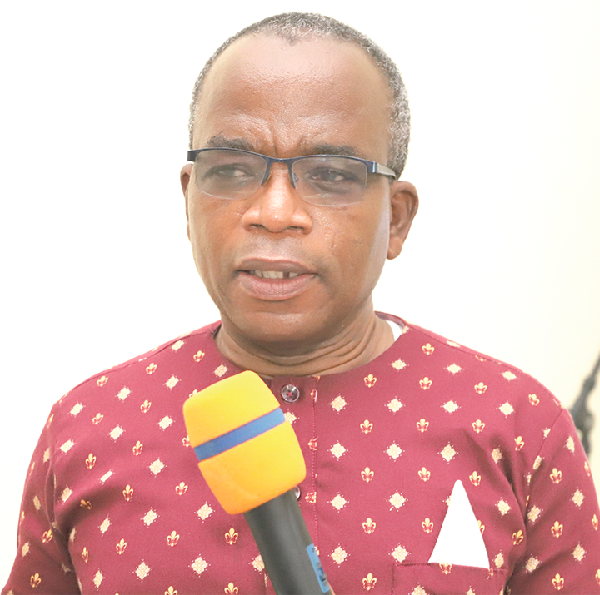
Avoid partisan politics at workplaces Boadu-Ayeboafoh urges GBC workers
The Chairman of the National Media Commission, Mr Yaw Boadu-Ayeboafoh, has urged management and staff of the Ghana Broadcasting Corporation (GBC) to work as professionals and avoid partisan politics at the workplaces in order to be recognised by the society they serve.
He said if they allowed partisanship to take over their sense of professionalism, they would not be able to prove their mettle as media practitioners, adding that the partisan positions they might take may not help them and the GBC brand.
He said in the corporation that was associated with credibility, balance and fairness, every member of staff would be seen in that light.
Mr Boadu-Ayeboafoh made the appeal in his address at an orientation and training programme for the management and staff of the state broadcaster in Accra last Sunday.
The three-day programme on the theme: “Transforming GBC from Bureaucracy to Business,” aimed at re-positioning GBC from a bureaucratic set-up to a business-oriented corporation.
Mandate
Mr Boadu-Ayeboafoh reminded the staff of GBC that their mandate included selling air time and providing information, and that they must always ensure that their credibility was not tainted in any way.
He advised members of staff not to allow themselves to be manipulated by politicians, saying “if we do our work well as workers of GBC, the prestige that goes with it is far more important than tying your destiny to the apron strings of some politicians”.
Dignify your work
Mr Boadu-Ayeboafoh advised the staff and the management of the corporation as well as other media houses to dignify their work environment as they pursued teamwork to enhance productivity.
He said the functional leadership in every media organisation must ensure that the people who worked under them were treated well and accorded the dignity and respect that they deserved.
He indicated that mutual respect and mutual recognition were generally essential for productivity in every organisation.
Respect
Mr Boadu-Ayeboafoh wondered why management and functional leaders would treat people with disrespect and still expect them to perform well.
He recounted that,when he was the editor of the Daily Graphic, he ensured that staff who wanted to go on study leave were given the opportunity to do so, as long as it did not affect the work.
“My philosophy was this; you can go and do your PhD, triple PhD and all that, for as long as I was the editor, you will not remove me from office, you will still come and work under me. But the quality of your output will improve. If you were giving me stories that were full of mistakes, at least going back to school will improve upon the editing, thus the better quality work you will give me, the little work that I do and I take all the credit,” he stated.
“Because at the end of the day, if anybody takes the newspaper and it is good, the editor is praised, it is not the individual journalists. So, why should I be a clod against your progress?”
He urged management of media organisations to stimulate their staff and identify those with potential and nurture them to perform creditably.
The Chairman of the National Media Commission intimated that the greatest and most sustainable change that could ever happen was the change from within; saying “it is when we change as individuals that we can help nurture and change others”.
He appealed to those in leadership to be concerned about the wellbeing of people who worked under them, and to also be thinking about how to improve upon the total quality of their output.
Director General of GBC
The Director General of the GBC, Professor Amin Alhassan, said GBC staff must continue to do the good work that they were doing but with a new perspective.
“It is about change management and we want to get our staff to come along, you cannot change the institution without the people. So, we are doing this extensive staff re-orientation to let them understand that the industry has changed, technology has changed; the days of analogue television and radio, where we were a monopoly is far gone. We are in a competition and we must be able to compete but we need to tune our staff into that position.”
He noted that aside from orienting and training their staff, they were procuring new equipment for the corporation.
Dr Charles Kwening, a Board Member of GBC, reminded the staff that their destiny was in their own hands and that they could decide to kill it or nurture it.
